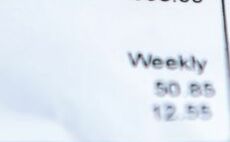Influential QC asks home secretary to keep hacker in the UK
McKinnon faces extradition to the US Lord Carlile of Berriew, the government's independent reviewer of terrorism laws, has spoken out against the proposed extradition of London hacker Gary McKin...
To continue reading this article...
Join Computing
- Unlimited access to real-time news, analysis and opinion from the technology industry
- Receive important and breaking news in our daily newsletter
- Be the first to hear about our events and awards programmes
- Join live member only interviews with IT leaders at the ‘IT Lounge’; your chance to ask your burning tech questions and have them answered
- Access to the Computing Delta hub providing market intelligence and research
- Receive our members-only newsletter with exclusive opinion pieces from senior IT Leaders




















